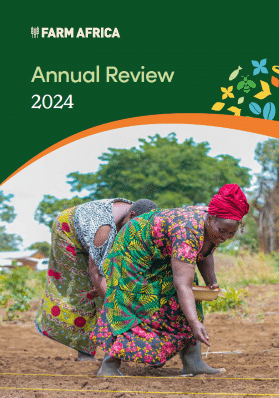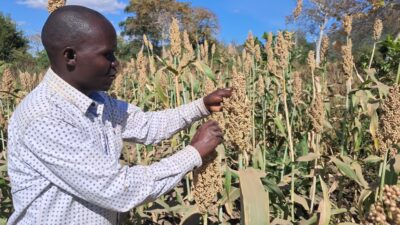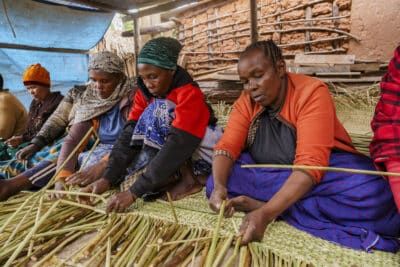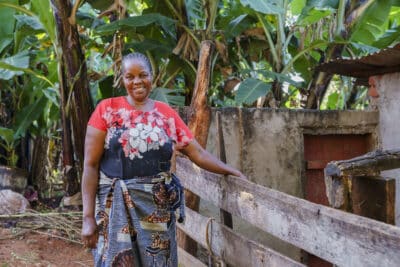Stories
Tanzania
7 August 2025
Improving nutrition for rural families
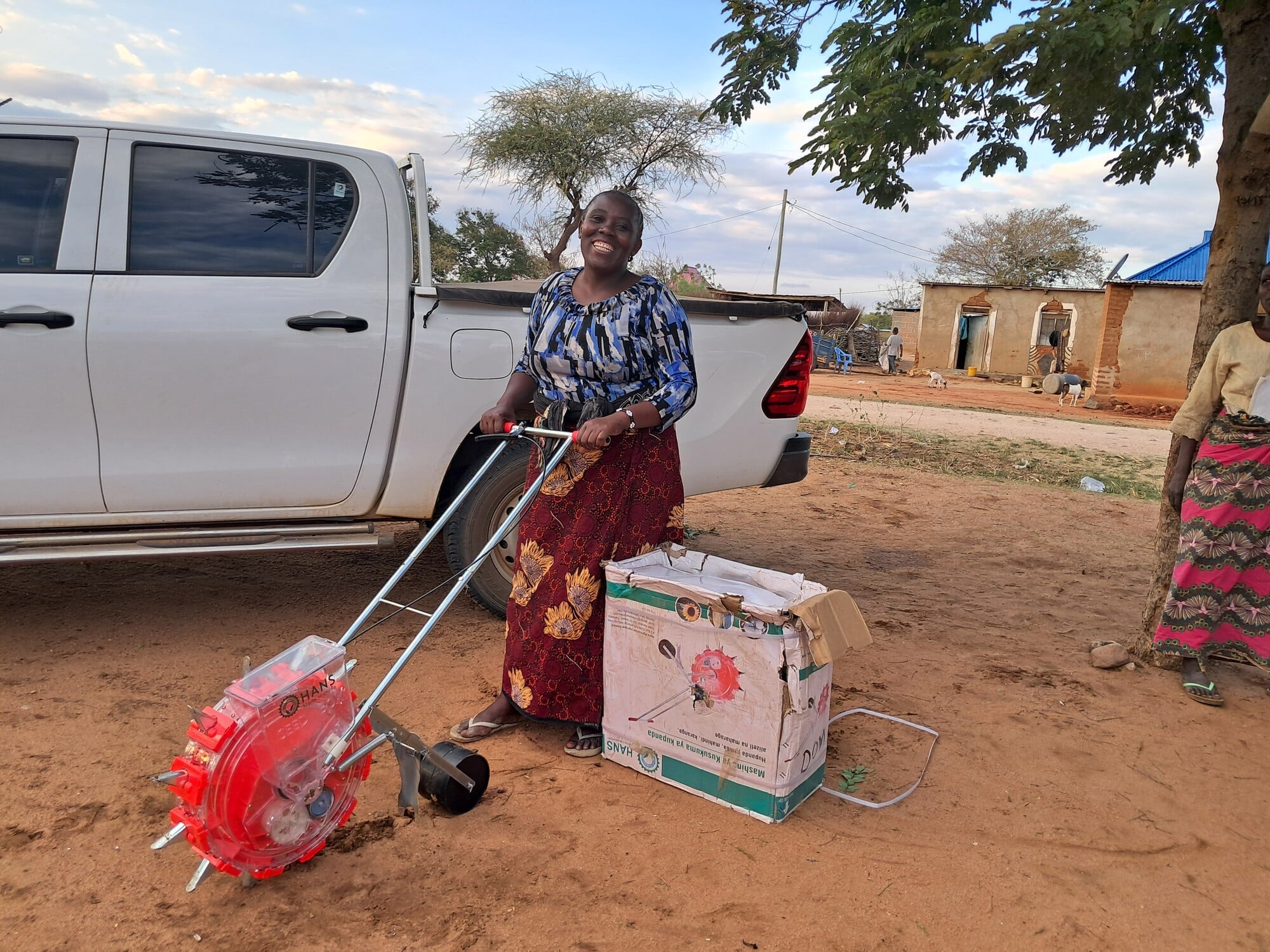
In rural Tanzania, farmers face an ongoing battle against harsh conditions. Delayed or failed rains lead to dry soil and low yields and malnutrition is a major challenge.
In central-northern Tanzania, over 40% of the population face food insecurity. In the Southern Highlands, approximately 500,000 children under five suffer from stunted growth. But climate-smart agriculture has the power to help communities build resilience in the face of climate change.
Damaris Machite, a mother and farmer from the Dodoma region, is building her resilience and transforming her farming after learning climate-smart agriculture practices through Farm Africa and SNV’s NOURISH project.
Armed with modern farming techniques like proper seed spacing and correct use of fertiliser, Damaris is now increasing her income as she is producing a good yield of nutritious crops including sorghum, sunflower, groundnuts and maize, whatever the weather.
And as a lead farmer, she’s sharing this knowledge with other farmers in her village.
Thanks to the project, Damaris bought a subsidised sowing seed planter. This investment has brought tremendous benefits, making her planting easier and more efficient.
"Before acquiring the planter, sowing on the 11-acre farm was time-consuming, taking almost ten days. However, we can plant the same acreage with the new machine in just three days."
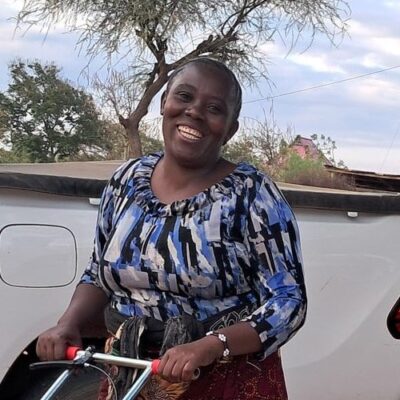
Damaris Machite
Smallholder farmer, Dodoma, Tanzania
Damaris also recognised the value of her planter as a new source of income and offers her services as a planter to her community. She said, “Myself and my husband have extended our services to other farmers in the community. We have planted 24 acres for neighbour farmers in December 2024 and generated TZS 240,000.”
The demand for the services continues to grow, and they anticipate planting more acreage within their village as soon as the rains stabilise.
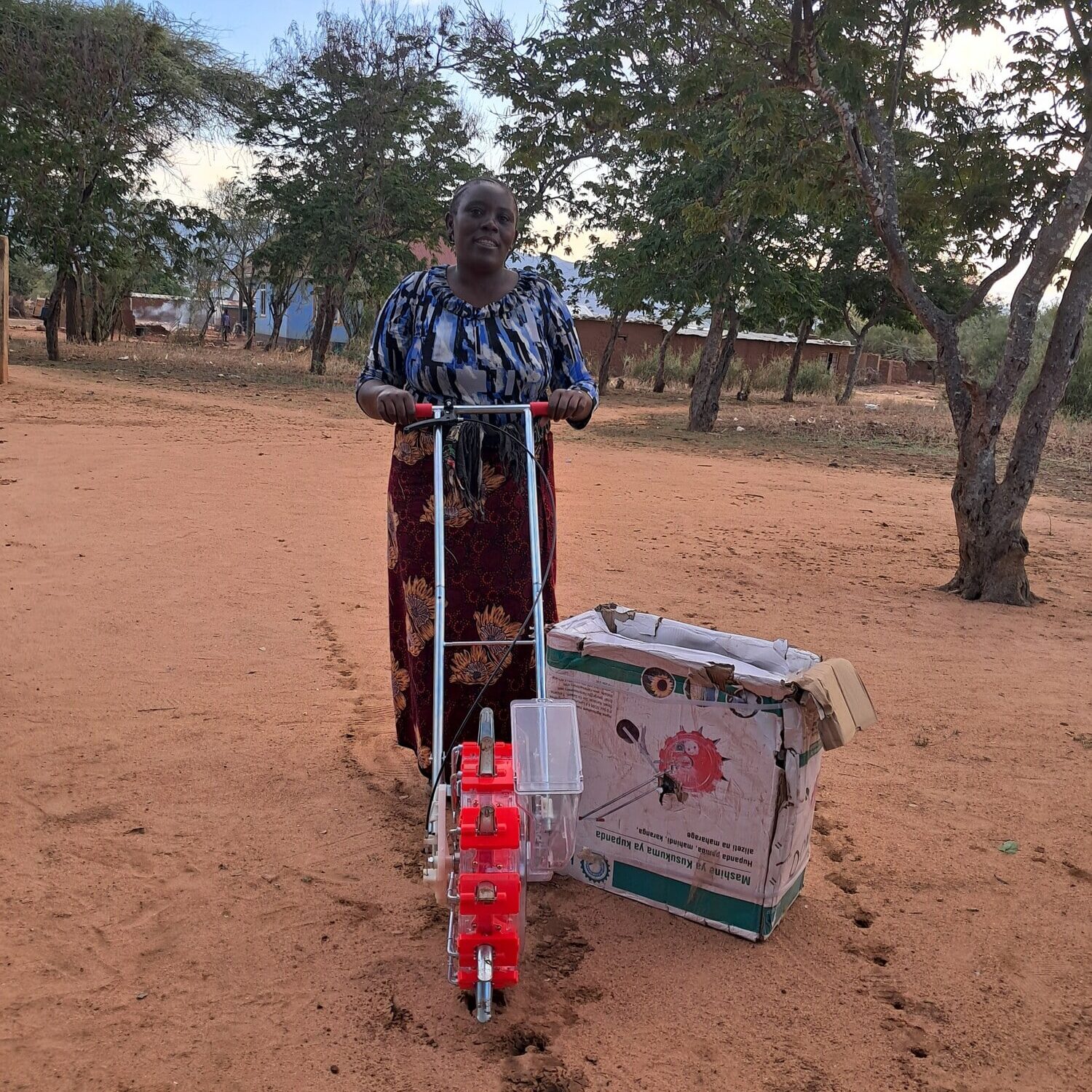
With this success, Damaris plans to purchase three more seed planters by the end of the year to help more farmers benefit from this cost-effective and time-saving technology.
Damaris is among 41 women who bought hand planters through a link with service providers facilitated by NOURISH and the project plans to continue expanding these opportunities in the coming years.
Launched in 2024, the NOURISH project equips smallholder farmers across Tanzania with the tools and knowledge to escape poverty and food insecurity. Funded by the Norwegian Agency for Development Cooperation (NORAD) and implemented in partnership with SNV, the project aims to reach 168,000 households by 2028.
Addressing systemic challenges
The problem facing Tanzanian farmers isn’t just unpredictable weather. It’s also markets that work against them.
Farmers struggle to obtain high-quality seeds, leaving them with low yields. Without proper soil testing, they often overuse or underuse fertiliser. And when they do produce a surplus, access to buyers remains a challenge. Many are forced to sell their crops to middlemen at rock-bottom prices.
Female farmers face additional barriers. Many do not own the land they farm, making it nearly impossible to secure loans for better equipment or seeds.
NOURISH is strengthening market connections too, ensuring that farmers can buy drought-tolerant seeds and sell their produce at fair prices.
477
lead farmers trained in climate-smart agriculture practices in 2024.
The project is also training farmers in agriculture techniques that boost productivity and resilience to climate change, such as agroforestry, crop rotation, crop diversification, use of soil cover, soil and water management, nutrient management and integrated pest management. These techniques help to improve soil fertility and protect land from degradation.
The project encourages farmers to grow common beans, sunflowers, sorghum and vegetables, all selected for their nutritional benefits, climate resilience and strong market demand.
10,000
trees planted to combat soil erosion and improve soil health in 2024.
Improving nutrition
In the Manyara region, small-scale farmer Loseku Saning’o’s family diet lacked fresh produce. But after attending a NOURISH nutrition training session, he planted vegetables in a kitchen garden.
“As a Maasai, we never valued vegetables,” recounted Loseku. “After receiving nutrition education, my family and I started incorporating vegetables into our meals. I also changed the snacks I give my children. Instead of bringing home bottled juice or soda, I now bring fresh fruit.”
Saning’o’s experience highlights one of the project’s key goals: improving nutrition. Many farming families in Tanzania lack dietary diversity, leading to widespread malnutrition. By encouraging farmers to grow and consume a variety of vegetables, NOURISH helps communities fight food insecurity.
Signs of progress
Early results demonstrate NOURISH’s scalable impact. By the end of 2024, a total of 477 lead farmers and 206 agricultural extension officers were trained in climate-smart farming techniques. And 106 of these lead farmers shared their knowledge with 817 smallholder farmers, creating a network of growing knowledge.
"Today, I have the opportunity to share knowledge with this group of farmers through a demonstration plot, hoping for positive results."
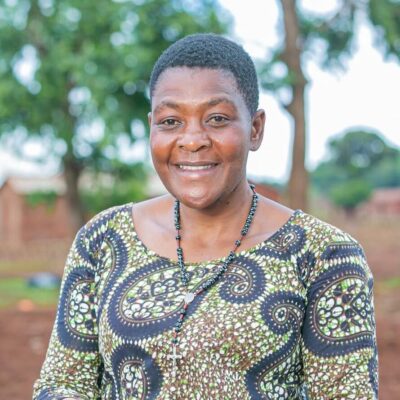
Neema
Lead farmer, Songwe, Tanzania
Over 280 demonstration plots were set up and nearly 10,000 agroforestry trees seedlings were planted to combat soil infertility and erosion.
Access to agricultural inputs is also improving. Through supply chains supported by the project, farmers purchased over 23 metric tons of quality sorghum seed and nearly 23 kg of vegetable seeds.
Women are at the forefront of this shift. They are receiving agricultural training, gaining access to financing and adopting farming methods that increase their productivity. They are stepping into leadership roles. NOURISH is showing that change is possible through investment in skills, knowledge and access to resources.
This story is from Farm Africa’s Annual Review 2024. Find more case studies from our projects and download our annual review below.
Photos: Loyce Murusuri Kaitira / SNV / Moshi Lukindo.
Farm Africa Annual Review 2024
Farm Africa reached 771,221 people in 2024: 26% more than in 2023. In this year’s Annual Review, we invite you to meet some of the project participants we’ve been working with and learn how they are using sustainable farming to power lasting change for their communities.
Download (3.23mb)
